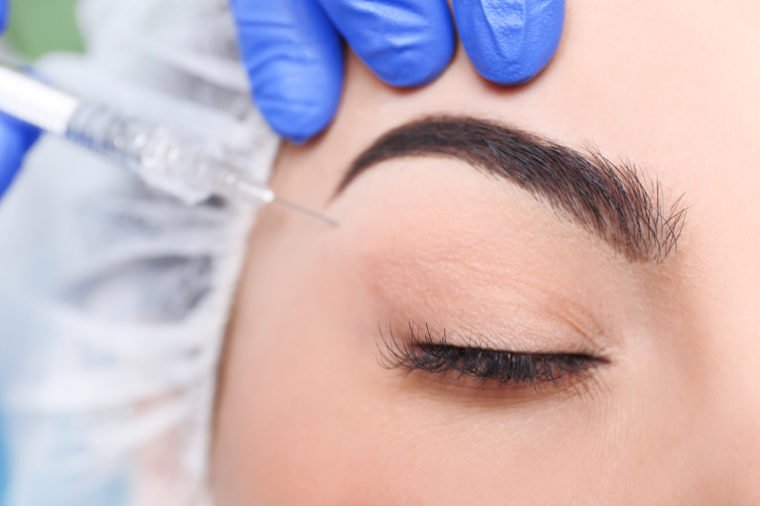Tips For Post-Plastic Surgery Care
Now a days, a lot of plastic surgery procedures are less invasive. But plastic surgery is still surgery – and even relatively simple procedures like facelifts often require recovery and healing periods
Follow Your Doctor’s Instructions To The “T”
Potential side-effects are most likely to occur immediately after your operation. Because of this, it is very important to follow all of your surgeon’s post-operative instructions. You will be supplied with a comprehensive packet of post-operative instructions. Be sure to follow these instructions to ensure a healthy recovery and eliminate potential risks. Never hesitate to ask your plastic surgeon specific questions about your recovery process.
Get Your Support System Ready
Not only will you need assistance after your surgery but you will also need a caretaker to take you to and from your procedure as you will not be able to drive. Also, you’re probably going to be out of commission for at least a week after a plastic surgery procedure. Inform your family and friends about your upcoming surgery, and make sure that you have a support system in place – people who can help you cook, clean, and do other tasks since you may be limited in the amount of activity allowed during your recovery period. The first 2-3 days after surgery will be the most difficult as you may experience uncomfortable soreness. It’s best to have someone in your home to take care of you during this time.
Be Ready To Take Time Off Of Work
You’re probably going to have to take a week or two off of work after your procedure. This means you may have to plan your cosmetic surgery around your available vacation days.
Relax And Keep Yourself Occupied
When you’re recovering from plastic surgery, it’s important that you limit activity and relax. Let the healing process take place. If you try to rush things, recovery may take longer. Keep yourself occupied. Check a few books out from the library or download a few on your Kindle. Find a few new shows to watch on Netflix or Hulu – this time is a great chance for you to relax and take things easy for a little while.

Things to Consider Before Having Plastic Surgery
Plastic and cosmetic surgery has substantially grown in popularity over the last few years, with the number of procedures increasing from 14 million to 23 million globally since 2010. People decide to have cosmetic surgery for many different reasons and the reasons are very personal. Appearances are one part of the story but not the whole tale. Often, it’s more about confidence and self-esteem. This is true for people in all age groups, but Millennials are having plastic surgery at fairly young ages, and their reasons for doing so may not be the same as for older people.
Am I Healthy Enough to Have Plastic Surgery?
Before considering plastic surgery, ask yourself if you’re healthy enough (most people are great candidates for plastic surgery in terms of health) and get your BIMC plastic surgeon to give you a thorough assessment (you will need to disclose your entire medical history). Remember, your BIMC plastic surgeon cannot provide an accurate assessment if you hide health problems. It’s important to note that certain health issues may prevent you from having plastic surgery.
What Are You Hoping to Gain from Your Surgery?
Obviously, an improvement in your facial features or the contour of a particular area of your body is expected. Perhaps you may even gain a boost in self-esteem. If you are expecting anything more than that, you should know the limitations of your procedure.
What Kind of Results Can You Expect from Plastic Surgery?
Your BIMC plastic surgeon can only control what happens inside the operating room. No matter how great a job your plastic surgeon does, it will not guarantee a job promotion, a relationship, or an improved social life or social status. Plastic surgery will not cure depression or eating disorders.
Are There Alternatives to Undergoing Plastic Surgery?
This is important to know because plastic surgery is not without risks. Could you improve your diet? Could you move your body a little bit more and get more exercise? If you’ve given other alternatives an honest try, then plastic surgery may be a good alternative for you. Not having surgery at all is also an alternative.

Things Plastic Surgeons Won’t Tell You
Plastic surgery before and after photos may be alluring, but before you consider going under the knife, here are the secrets you need to know.
I had a patient who wanted a brow lift because she thought she looked grumpy all the time
I sent her for a brow wax instead. It took 15 minutes, she looked great, and she saved herself $5,000. I’ve also seen patients get results similar to eyelid lifts with over-the-counter firming serums and eyelid-lift creams. The results are temporary, but they do work to reduce lines and puffiness
It drives me crazy when parents call from the emergency room because their kid got a scratch on his face
It’s not going to look any different if I sew it up instead of the ER doctor; it’s probably just going to cost you a lot more money. Unless the injury is severe, you don’t need a plastic surgeon for every cut and scrape.
If I’ve invested $200,000 to buy a laser machine, that’s probably what I’m going to recommend, even though another type of treatment may be cheaper
Make sure you ask if there is an alternative, such as a chemical peel, that might work just as well or better.
We have a secret weapon we can use when things go wrong: leeches
By restoring blood flow and secreting a chemical that prevents blood clots, leeches can help salvage a breast lift gone bad or a reattached finger that’s about to die. It sounds gross, but reconstructive plastic surgeons use them routinely.

Things That Make a Good Plastic Surgery Expert Witness
The role of a plastic surgery expert witness is not a simple one. There are several components required in order to perform this role well. With every word being scrutinized, there is a great amount of pressure resting on the shoulders of expert witnesses, not to mention the added pressure of being addressed – and accountable – in a court of law.In this brief article, we will outline three things which make a good plastic surgery expert witness. When choosing your next expert witness, it might be prudent to ensure the plastic surgery expert witness you choose has these qualities
A strong plastic surgery medical background and qualifications
This is perhaps obvious, but it’s important that a plastic surgery expert witness demonstrate that s/he is indeed an ‘expert.’ This is best proven in the form of qualifications, in particular, being Board Certified by the American Board of Plastic Surgery. A Board Certification indicates that the surgeon has met high standards in this specialty.
Experience
It’s important that plastic surgery expert witnesses have experience in two areas. First, in their medical specialty. In addition to having certifications, having many years of experience performing plastic surgery, writing Independent Medical Evaluations, and reviewing cases are all things which help to make a good expert witness. Second, experience of being a plastic surgery expert witness also greatly helps. It stands to reason – the more you do something, the better you get. The same applies to being a plastic surgery witness. Plastic surgeons who have served as an expert witness many times – over many years – become more adept to fulfilling their role in an objective and effective manner.
Knowledge and use of a code of ethics for plastic surgery expert witnesses
put together a code of ethics which aims to provide a guide for expert witnesses and how they should behave in an ethical way. This code of ethics is effectively a set of criteria which allows plastic surgery expert witnesses to consistently perform their duties in an ethical and moral way. For example, it offers clear guidelines with regards to performing the role in an objective way. Furthermore, it also covers other areas as confidentiality. In short, by choosing a plastic surgery expert witness who uses a code of ethics, it gives you added reassurance that ethics and professionalism will be adhered to at all times.
About the Author
This expert witness plastic surgeon – is certified by the American Board of Plastic Surgery and is a member of the American Society of Plastic Surgeons. He is also a fellow of the American College of Surgeons

Cosmetic Surgery and Procedures
What are cosmetic surgery and procedures?
Cosmetic surgery and procedures change, restore, or enhance your appearance. There are many reasons for wanting to change or enhance your looks. If you have had burns or other injuries, were born with a birth defect, or want to change parts of your body for other reasons, you may choose to have a cosmetic surgery or procedure.
What are the general types of cosmetic surgery and procedures?
Cosmetic surgery commonly includes:
Reconstructive surgery. This is typically done to improve a visible scar, skin condition, or malformed body part caused by an injury, a surgery, a disease, or a birth defect. These problems can affect your day-to-day life, including your job, your relationships, and your self-esteem.
Elective cosmetic surgery. Being unhappy with something about your appearance—such as a large nose, small breasts, wrinkles, or fat around your belly or hips—is a common reason for choosing to have cosmetic surgery. These kinds of things don’t bother everyone who has them. But for some people, these things can affect their self-image or confidence. Cosmetic surgery is one way to address them.
Nonsurgical cosmetic procedures include:
Botox injections.
Fat deposit removal, either with injectable deoxycholic acid (Kybella) or by freezing fat cells below the surface of the skin with a handheld device (CoolSculpting).
Filler injections, which include soft tissue fillers.
Laser hair removal.
Laser resurfacing to improve acne scars.
Sclerotherapy injections for small varicose veins and spider veins.
Teeth whitening.
Why are these surgeries and procedures done?
For most of us, our physical appearance affects how we see ourselves and how others see us. The size, shape, and look of our bodies may affect how we feel about ourselves and even how we live our lives.